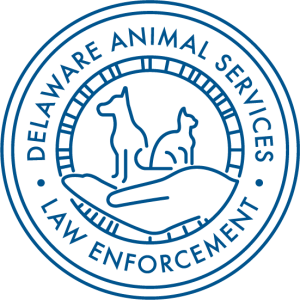Wilmington (September 2, 2021) — Officers from the Division of Public Health Office of Animal Welfare (OAW) announced the arrest today of an Elsmere woman on charges of animal cruelty.
Marybeth Stankevich, 64, was arraigned in JP Court 11 in New Castle on 106 charges, including:
· 49 misdemeanor counts of animal cruelty, four felony counts of animal cruelty
· 49 counts of failure to inoculate for rabies
· One count of failure to remove excreta and food waste daily
· One count of failure to store food and bedding protecting from spoilage and contamination
· One count of failure to meet drainage and waste disposal requirements
· One count of failure to maintain water receptacles in a clean manner weekly.
Stankevich was released on her own recognizance and is prohibited from possession of domestic animals pending a court hearing.
On Tuesday, the OAW’s Delaware Animal Services (DAS) enforcement unit responded to a complaint concerning the welfare of animals on the Elsmere property. DAS executed a search warrant to enter the property, where officers discovered 49 cats living in inhumane, deplorable conditions in the home. In addition, four deceased cats were found in the home. Code enforcement has condemned the home.
The cats were transferred into the custody of the Brandywine Valley SPCA, the state’s shelter provider, where they have been receiving care and treatment. Most of the cats are under-socialized, so the Brandywine Valley SPCA is seeking placement as working cats for most of the cats once they receive evaluations and any necessary medical care.
A working cat lives an independent life with basic care provided by the caregiver. Examples of working cat environments include barns, warehouses, greenhouses, churches and studios. Those interested in adopting should visit the Brandywine Valley SPCA’s New Castle Campus.
To report animal cruelty in Delaware, call DAS at 302-255-4646.
###
Anyone who is deaf, hard of hearing, Deaf-Blind or speech disabled can contact DPH by dialing 711 first using specialized devices (i.e. TTY, TeleBraille, voice devices). The 711 service is free and to learn more about how it works, please visit delawarerelay.com.
The Delaware Department of Health and Social Services is committed to improving the quality of the lives of Delaware’s citizens by promoting health and well-being, fostering self-sufficiency, and protecting vulnerable populations. DPH, a division of DHSS, urges Delawareans to make healthier choices with the 5-2-1 Almost None campaign: eat 5 or more fruits and vegetables each day, have no more than 2 hours of recreational screen time each day (includes TV, computer, gaming), get 1 or more hours of physical activity each day, and drink almost no sugary beverages.
